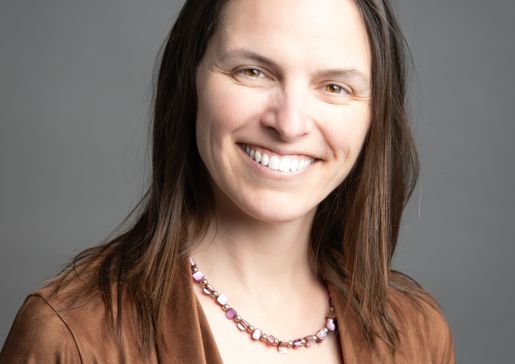Feeling Stuck?
The Department of Medicine offers free life coaching to its residents, fellows and faculty.
Coaching is recommended for anyone experiencing a personal or professional “sticking point”—whether that’s testing anxiety, trouble sleeping, or a general lack of motivation.
Through a series of one-on-one sessions focused on gentle inquiry and encouragement, our certified life coach will help you identify ways to take effective action and move forward in your life and career.
Learn More About Coaching
In graduate medical education (GME) settings, coaching has been shown to reduce burnout and enhance well-being. Here's a look at some of the recent literature:
- The coaching ripple effect: The effects of developmental coaching on wellbeing across organizational networks (Psychology of Well-Being)
- Effect of a Professional Coaching Intervention on the Well-being and Distress of Physicians (JAMA Internal Medicine)
- Identifying Coaching Skills to Improve Feedback Use in Postgraduate Medical Education (Medical Education)
- A Developmental Approach to Internal Medicine Residency Education: Lessons Learned from the Design and Implementation of a Novel Longitudinal Coaching Program (Medical Education Online)
Meet the Coach
Jami Simpson, MS, ACC, TICC, is a certified professional life coach and the fellowship program coordinator for the Division of Allergy, Pulmonary and Critical Care Medicine. She has spent nearly 200 hours coaching over 70 clinical trainees and faculty at the UW School of Medicine and Public Health.
Credentials:
- International Coaching Federation (ICF) Associate Certified Coaching (ACC) credential
- Trauma Informed Coach Certificate (TICC)
- Graduate of the Certified Professional Coach Program, UW–Madison
- Master's Degree in Adult Education
- Awarded the 2025 Association of Pulmonary and Critical Care Medicine Program Directors (APCCMPD) Award for Excellence in Fellowship Program Administration (read related article)

Frequently Asked Questions
What is a session like?
A typical coaching session begins with a few clarifying questions about what you believe needs to change, why you feel it's important to change, and what you think is getting in the way.
Roughly 60% of the session will be spent on discussing observations about your limiting beliefs, judgments or patterns of behavior related to the problem you wish to address, as well as a discussion of your values and how they relate.
Each session finishes with identifying the insights you might use to move forward.
How many sessions?
The number varies from person to person, but typically you'll have between three and six sessions of up to sixty minutes.
Is coaching confidential?
All coaching sessions are confidential. All personal information and private discussions remain that way.
How often can I have coaching sessions?
The frequency of coaching sessions can be tailored. Some prefer weekly sessions, while others may opt for bi-weekly or monthly sessions.
Is there a difference between life coaching and professional coaching?
Although you'll often see the terms used interchangeably or even together, they are technically distinct:
- Life coaching emphasizes holistic personal development—including work-life balance and meaning-making—with an overarching goal of increased self-awareness and well-being.
- Professional coaching emphasizes skills and competencies tied to realizing specific professional goals.
That said, our trainees and faculty often come with needs in both areas!